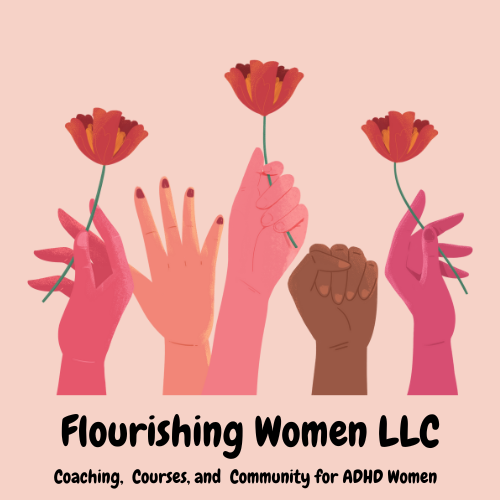Many ADHD women carry decades of criticism. Self-compassion is often misunderstood as something soft or indulgent. Flourish teaches self-compassion as a practical regulation tool.
It is a way of speaking to yourself that reduces shame and increases clarity.
Why Self-Compassion Is Hard
ADHD women often grew up hearing “try harder,” “stop being emotional,” or “you are too sensitive.” This becomes internal messages like “I should be able to do this” or “everyone else can.”
Self-compassion interrupts these patterns.
How Self-Compassion Helps
It supports emotional regulation, reduces fight-or-flight reactions, shortens recovery time, and gives you permission to pause. Tone matters. When your self-talk is steady, your body stabilizes.
What Self-Compassion Looks Like
“This is hard for me because of the context.”
“It makes sense that I am overwhelmed.”
“I can respond with clarity instead of criticism.”
Small shifts create emotional space.
What Helps
1. Replace judgment with observation
“What made this task hard for me today?”
2. Use steady statements
“I am overwhelmed.”
“I need support.”
“I can try again.”
3. Separate worth from performance
Worth is not based on productivity, neatness, or emotional consistency.
The Flourish Way
Flourish teaches self-compassion as a grounded, direct, trauma-aware practice built for ADHD attention.
Want to explore more?
Flourish has a full workbook available.

I don’t think the title of your article matches the content lol. Just kidding, mainly because I had some doubts after reading the article.
Thank you for your sharing. I am worried that I lack creative ideas. It is your article that makes me full of hope. Thank you. But, I have a question, can you help me? https://www.binance.info/pt-BR/register?ref=GJY4VW8W